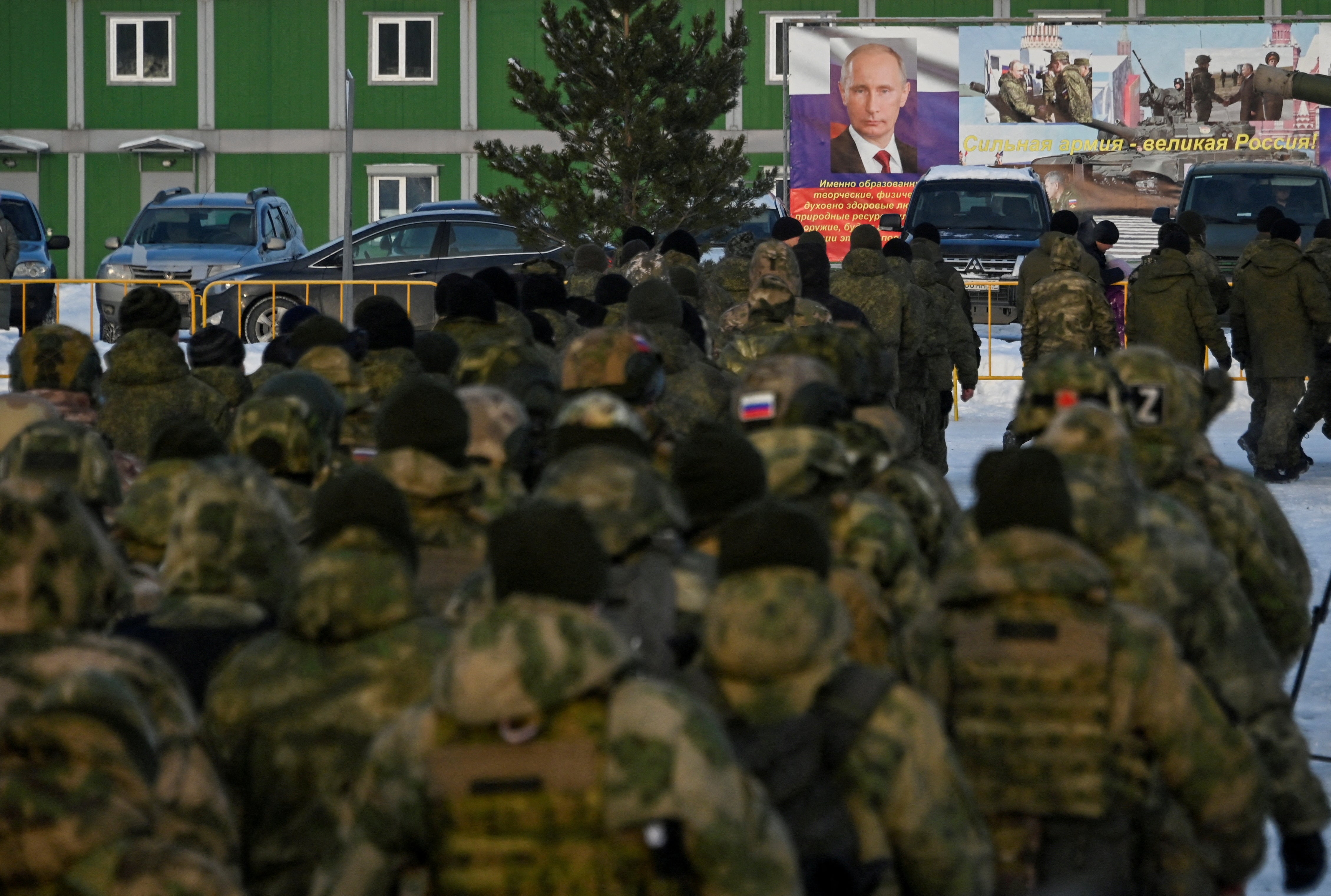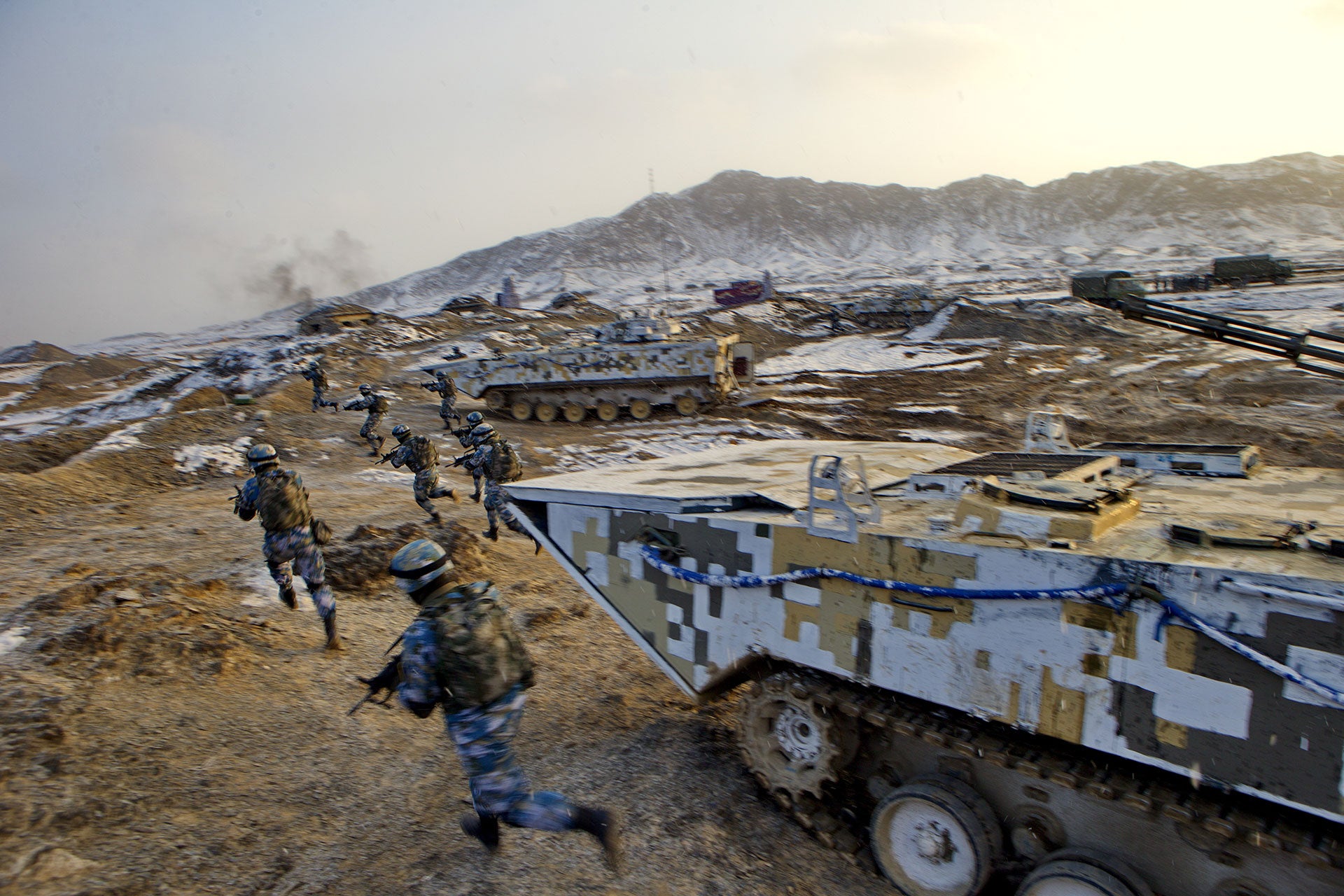
Analysis: Russia's e-conscription overhaul shows manpower scramble
MOSCOW (Reuters) - A rapid overhaul to Russia’s conscription system rushed through parliament on Wednesday has underlined a scramble for additional manpower for its forces fighting in Ukraine.
On Wednesday, Kremlin spokesman Dmitry Peskov said the “extremely important” law was intended to solve what he called “a mess” in Russia’s draft centres that had been exposed by a partial mobilisation in September, when the government was forced to retract a number of wrongly-issued draft papers.
In some ways, the new laws are harsher than September’s decree on partial mobilisation, whose enforcement was patchy, and varied from region to region.
Whereas in September conscripts, whose draft papers were only considered valid once physically presented to them, could avoid the draft simply by avoiding picking up their summons, the new law would make that all but impossible.
Draft notices were made difficult to miss by serving papers on Russia’s near-ubiquitous Gosuslugi (“state services”) platform, which Russians use for a wide spectrum of everyday tasks, from registering their children for school, to requesting doctor’s appointments and paying their taxes.
Moreover, the law allows for any draftee still ignoring their online summons after a seven-day period to be legally declared a fugitive, banned from leaving Russia, and have their assets frozen.
One potential draftee, 23-year-old Artyom, told Reuters he was thinking about deleting his Gosuslugi account, and had hired a lawyer to appeal his draft status. "I think it will be tougher than usual. It is going to be much more difficult to dodge," said Artyom, who asked for his surname to be withheld.
Even so, Artyom said he had not yet decided whether to leave Russia. "God knows what I'd do abroad," he said. "Plus, my grandma is here and I need to help her on the allotment."
The new law appeared part of a renewed push to generate more manpower for Russia’s military in Ukraine, where analysts say a much-anticipated winter offensive appears to have fizzled out without meaningful gains for Moscow.
On March 30, British Defence Intelligence said that Russia planned to recruit an additional 400,000 professional soldiers, echoing Russian media reports.
MANPOWER DEPLETED BY BATTLEFIELD LOSSES
Western analysts have suggested that the recruitment drive was driven by heavy personnel losses in a grinding, months-long battle for the city of Bakhmut in eastern Ukraine, alongside a costly failed attack on the town of Vuhledar which badly depleted Russian strength in the Donbas region ahead of a widely anticipated Ukrainian counter-offensive.
Mike Kofman, an expert in the Russian military at the U.S.-based CNA think-tank, has said that only a small proportion of Russia's troops in Ukraine are capable of offensive operations.
For some weeks now, Russian authorities have been pushing publicly to recruit more contract soldiers. On the homepage of the Gosuslugi online platform, where draft papers are set to be issued, a large button in the centre of the display invites users to enlist as professional contract soldiers.
Meanwhile, a physical recruitment drive is being rolled out across Russia.
In Moscow, Reuters saw posters promoting military service displayed in shops, restaurants and bus stations.
Elsewhere in the Russian capital, leaflets were being handed out by military recruiters. They offered soldiers deployed to the front in Ukraine monthly salaries of between 210,000 roubles ($2,581.44) and 340,000 roubles ($2,581-$4,179) - many times the average Russian monthly wage of around 64,000 roubles.
Separately, the Wagner Group mercenary army, which has handled much of the fighting around Bakhmut, is conducting its own recruitment drive with billboards and mobile recruitment centres offering six-month contracts with the once secretive private military company.
However, despite the ramping-up of recruitment and the new laws, there is none of the widespread panic among military-age men that greeted the announcement of a partial mobilisation in September.
In contrast to September’s rapid exodus of anti-war Russians, no immediate rush for the borders was apparent on Wednesday.
Air tickets to popular emigrant bolt-holes like Armenia and Kazakhstan were available at normal prices, and there were no reports of queues at the land border with Georgia, where tens of thousands crossed over in the autumn.
However, anti-conscription activists said they had seen a spike in interest since the passage of the new laws.
Grigory Sverdlin, head of Go by the Forest, a group that offers advice on how to avoid being drafted, told Reuters that the organisation had received between five and seven times more requests than usual in the day since the new laws were approved by the State Duma (parliament). He said many seeking help wanted to know if they should delete their Gosuslugi accounts.
Sverdlin said he expected the new recruitment push to eventually provoke a new wave of Russians to flee the country, even after many of those most willing and able to leave had already done so.
“If we are talking about a second wave of emigration, I am sure it will happen,” he said. “I think that in a week or two we will most likely see queues again at (Georgian border post) Verkhny Lars, at border checkpoints with Kazakhstan and other popular destinations.”
($1 = 81.3500 roubles)
(Reporting by Reuters; Writing by Felix Light; Editing by Mark Heinrich)









